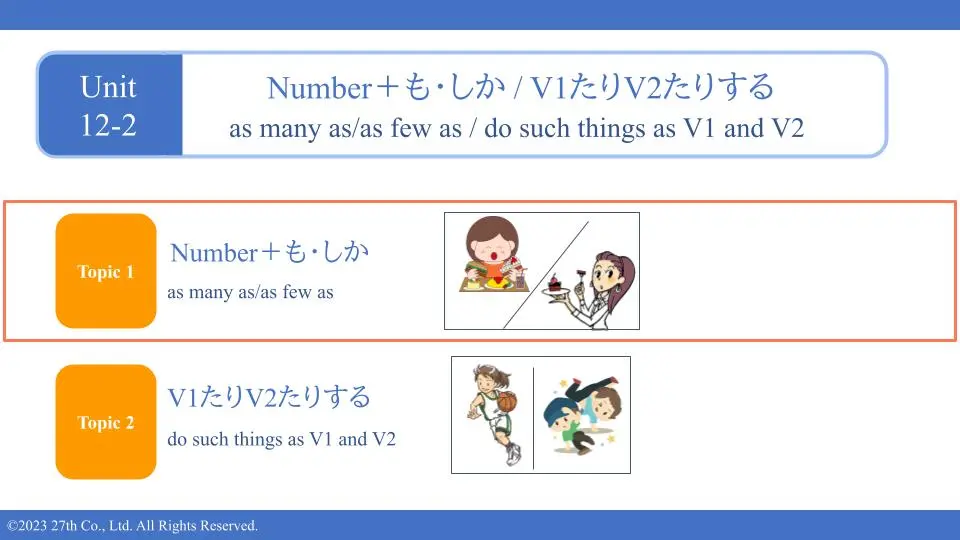
How to Say “As Many As” and “Only” in Japanese | Using Number + も / しか
Introduction Want to say things like: In Japanese, you can express surprise at a high number or disappointment at a low number by combining a number with the particles... Read more.
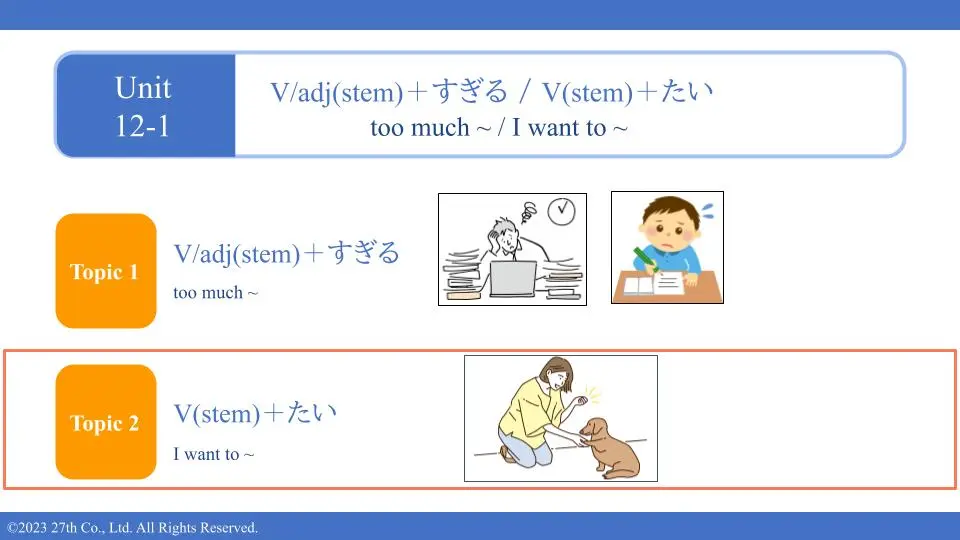
How to Say “I Want to ~” in Japanese | Using Verb + tai (たい)
Introduction Want to say: In Japanese, there’s a super useful way to express what you want to do using: Verb stem + たい= I want to ~ Let’s learn how to talk... Read more.
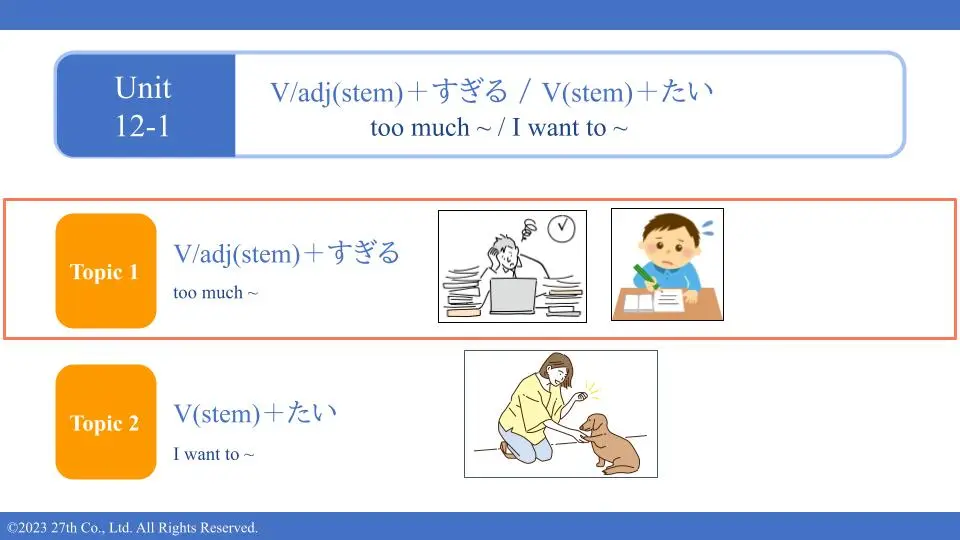
How to Say “Too Much” in Japanese | Using V/Adj + sugiru (すぎる)
Introduction Want to say things like: In Japanese, there’s a simple and useful way to express excess using: Verb or adjective (stem) + すぎる= too much / overly... Read more.
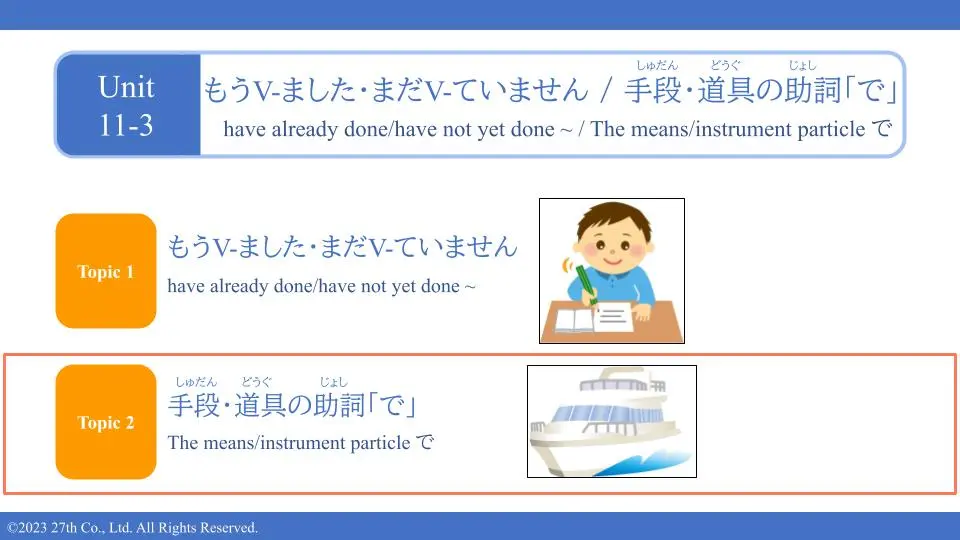
How to Say “by car” or “with a pen” in Japanese | The Means/Instrument Particle で
Introduction Want to say things like: In Japanese, the particle で is used to express how or with what tool you do something. It’s called the means or instrument... Read more.
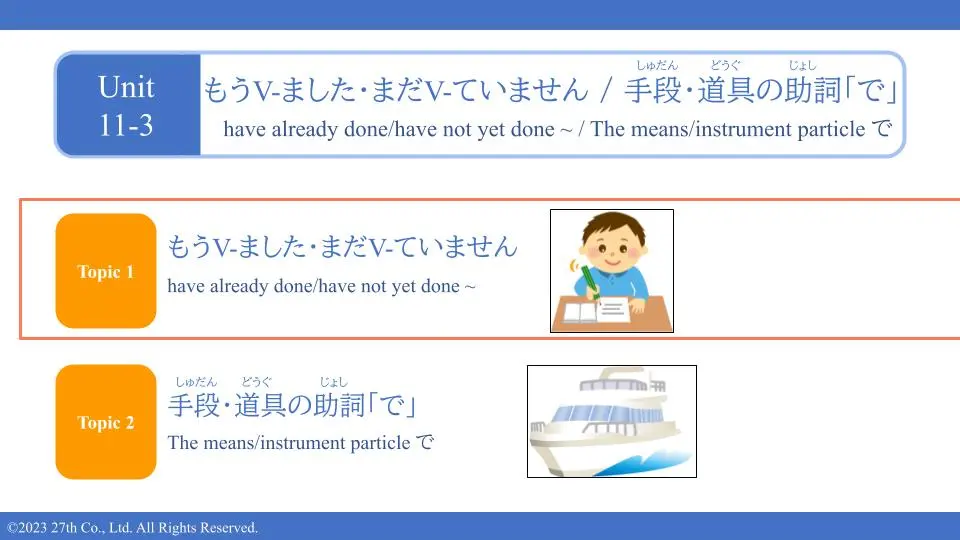
How to Say “I’ve Already Done It” or “I Haven’t Done It Yet” in Japanese
Introduction Want to say “I’ve already eaten” or “I haven’t seen that movie yet” in Japanese? These are very useful expressions for everyday conversations... Read more.
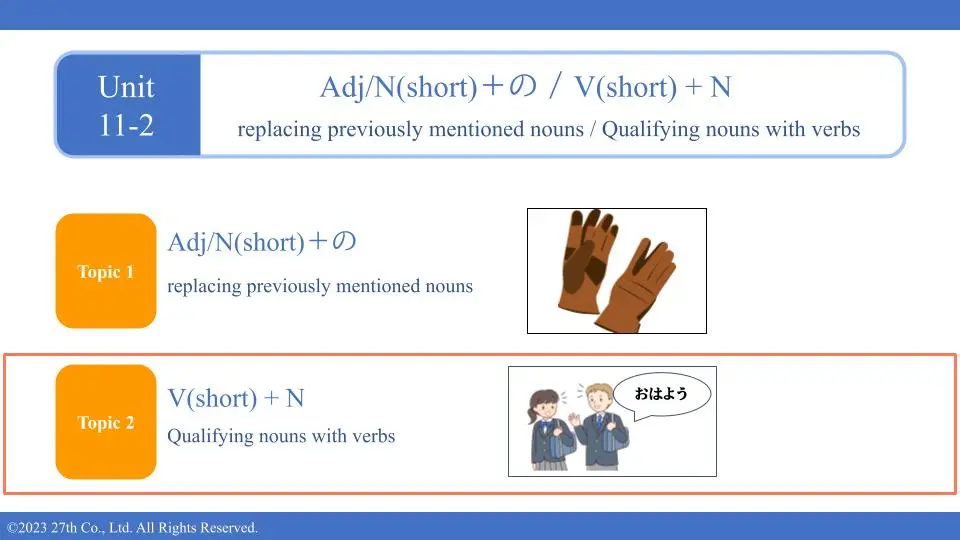
How to Describe Nouns with Verbs in Japanese | Using Verb + Noun (V + N)
Introduction Want to say things like: In Japanese, you can put a verb before a noun to describe it — no need for extra words like “who” or “that.” This... Read more.
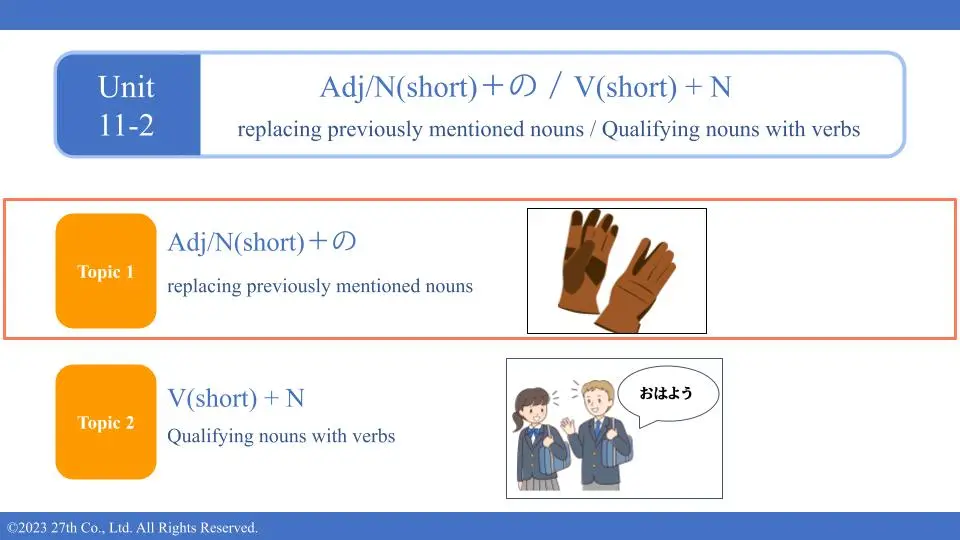
How to Say “The Red One” in Japanese | Using Adjective + no(〜の) to Replace Nouns
Introduction Want to say things like: In English, we often drop repeated nouns by replacing them with words like “one” or “ones.” Japanese does the same... Read more.

Hanami (花見): How Japanese People Celebrate Cherry Blossom Season
Background Celebrating Japan’s Cherry Blossom Season Hanami, meaning “flower viewing,” is a Japanese tradition of enjoying the beauty of cherry blossoms.... Read more.
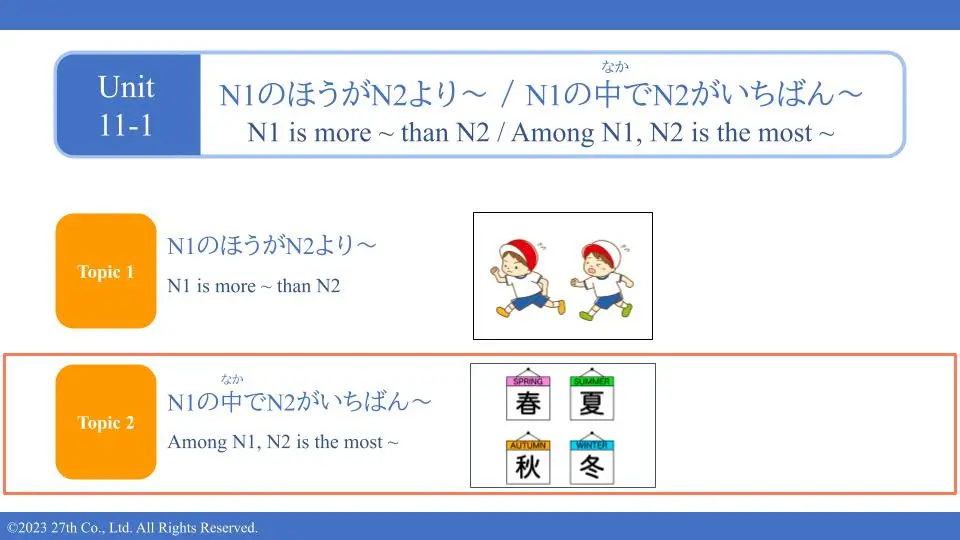
How to Say “The Most ~ Among” in Japanese | Using N1 no naka de N2 ga ichiban (N1の中でN2がいちばん~)
Introduction Want to say things like: Japanese uses a clear and useful structure for superlatives — when something is the best, the most, or #1 within a group.... Read more.
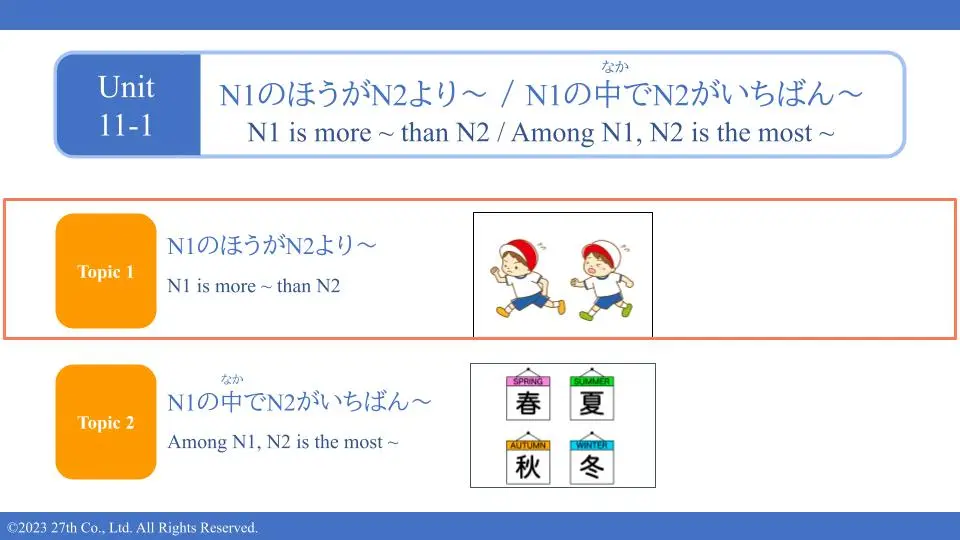
How to Say “N1 is More ~ Than N2” in Japanese | Using N1 no hou ga (のほうが) N2 yori (より)〜
Introduction Want to compare things in Japanese?Whether you’re saying: Japanese has a clear, simple way to say “N1 is more ~ than N2” using: N1 のほうが... Read more.
